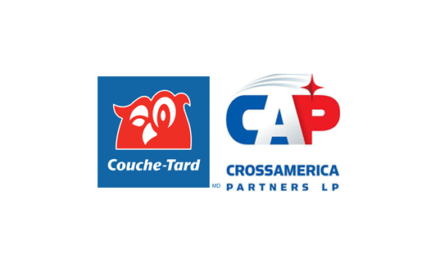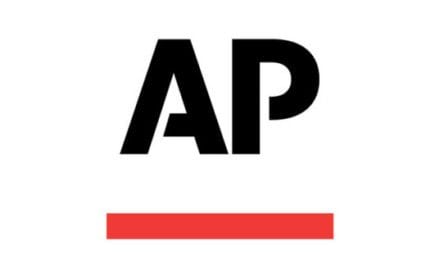By Shane Dyer
It was announced on July 30th that WEX, Inc. has sold the Pacific Pride Services, LLC subsidiary to Fleetcor for approximately 50M. This came as a surprise to most in the industry who are involved in the reciprocal commercial fueling network model. The reasons cited for the divesture were the complexity of the franchise model and the need to reallocate resources to new initiatives more in line with WEX’s strategic objectives. It’s also possible that WEX was struggling with the need to invest in the Pacific Pride technology platform upgrades.
WEX acquired Pacific Pride Services, Inc. in February of 2008 for 32M, and held the company for six years after renaming it Pacific Pride Services, LLC. According to the earnings call, WEX realized 29M in pre-tax gain. PPS, LLC represents over 300 independent petroleum marketing companies who issue commercial fleet cards under the Pacific Pride brand. It’s estimated that over 1B gallons are switched through the PPS network annually, and when considering the margins on fuel, this represents a significant business interest for those who have embraced the commercial fleet fueling model through PPS, LLC.
The divesture to Fleetcor, who also owns the Commercial Fueling Network (CFN), consolidates this valuable model into a single provider. It also leaves WEX without this as a strategic asset which many in the industry believe was their number one downstream marketing channel. Consider the following facts:
By conservative estimates PPS franchisees collectively employ between 600 and 800 sales representatives who are geographically dispersed throughout the United States. These representatives are marketing fleet cards under the Pacific Pride brand where WEX was realizing revenue for doing little more than providing a technology platform. Franchisees carry the burden of marketing, distributing, and supporting the issuance of the cards. They also bear the bad debt risk. It’s hard to fathom how WEX will be able to replace this “feet on the street” presence.
There will most definitely be an impact to those businesses who have embraced Pacific Pride. In recent times, PPS, LLC has encouraged their franchisees to embrace new products and services based on the WEX platform, including the Pride Complete card which allowed franchisees to sell a universal product with access to over 145K sites in the U.S. and Canada.
The franchisees were embracing this powerful tool and had issued it strategically to many new and existing customers. It has been reported by Pacific Pride franchisees that this card will no longer be available. For franchisees who have acquired customers with the aid of the Pride Complete card, they are facing a difficult situation ahead as they will have to re-approach their customers and try to move them back to a card with less locations. (At the time of this article, it’s not yet clear how Fleetcor intends to provide a replacement for the Pride Complete card product).
There are also many questions regarding how the franchisees existing business model is going to change as Fleetcor begins the process of integrating the two networks, beginning with the technology platform, and then from an overall business model perspective. CFN was created as an alternative for petroleum marketers who had not joined Pacific Pride. As the two networks evolved, if you hadn’t joined Pacific Pride, you joined CFN, and vice versa. As such, many of the Pacific Pride and CFN locations are in close proximity to each other. CFN participants and Pacific Pride franchisees have aggressively competed with each other over the years.
How Fleetcor chooses to manage this over time is on the minds of many. For those involved exclusively with Pacific Pride, the franchise concept represents security as their investment is protected through non-compete agreements and zip code exclusivity. While some of these protections were changing prior to the sale, the fact remains that franchisees all have three-year contracts that are in various states of maturity. Fleetcor will have to consider this as they determine whether or not they intend to continue with the franchise model or move everyone to less restrictive Mutual Access Agreements which currently govern CFN. Obviously this will require a delicate balancing act to juggle these elements in a manner that protects the business interests of those involved in either network.
Also there is the consideration of when the two cards will be able to coexist at the same site through the same point of sale system. The quick technical answer is; as soon as the authorization system is one and the same, and the Point of Sale systems are redirected. The business answer will be up to Fleetcor.
I have long believed that having all of the cardlock locations in the country under one roof is an advantage to the petroleum marketer who engages in the business model. This is the primary reason I’ve encouraged my clients nationwide to join both networks. Not only did belonging to both networks provide a larger footprint of valuable unattended fueling locations to serve your customers, it provided a hedge against unforeseen events striking one network or the other.
On July 30th, 2014, the landscape changed in a manner where the impact has yet to be fully realized. Everyone involved in commercial fleet fueling should be reviewing their current business model and assessing what adjustments might be required in order to ensure they remain competitive and profitable.
 Shane Dyer is the president of PowerUp Fleet, Inc. He possesses over 29 years petroleum automation, operations, and executive management experience with a focus on commercial fleet fueling and cardlock networks. PowerUp Fleet, Inc. provides sales force automation/CRM solutions specific to the petroleum industry along with sales training, sales management, and executive consulting services. Contact: (541) 388-5120 or [email protected] and visit PowerUp Fleet at: www.powerupfleet.com
Shane Dyer is the president of PowerUp Fleet, Inc. He possesses over 29 years petroleum automation, operations, and executive management experience with a focus on commercial fleet fueling and cardlock networks. PowerUp Fleet, Inc. provides sales force automation/CRM solutions specific to the petroleum industry along with sales training, sales management, and executive consulting services. Contact: (541) 388-5120 or [email protected] and visit PowerUp Fleet at: www.powerupfleet.com








